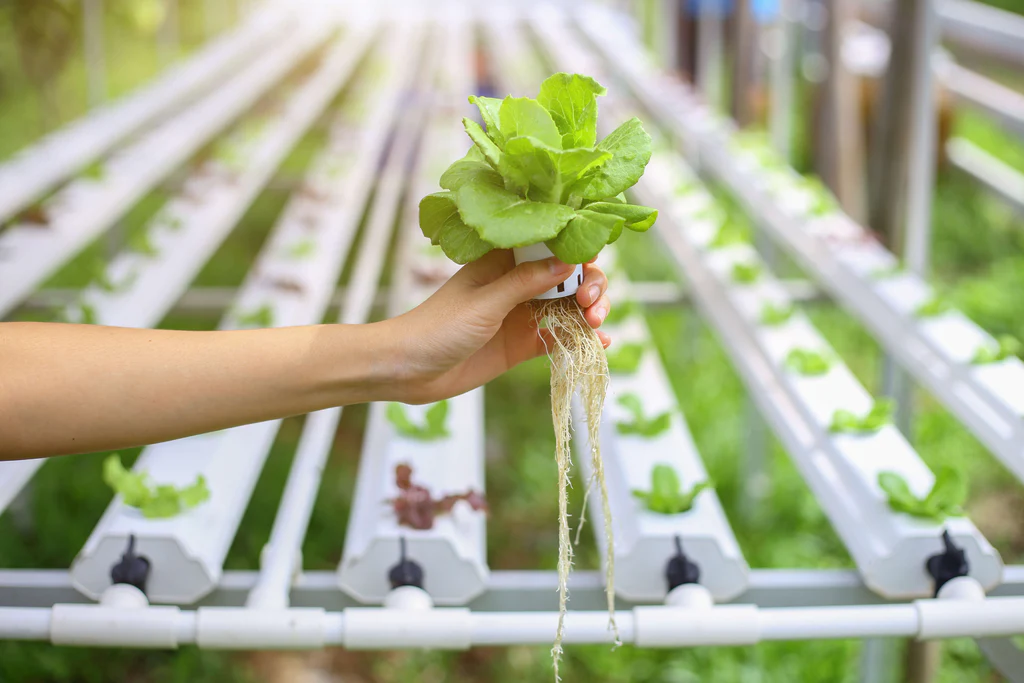Introduction:
As the world's population continues to grow and resources become scarcer, there is a pressing need for new and innovative solutions to food production. One such solution is hydroponics, a method of growing plants without soil that is rapidly gaining popularity among farmers and hobbyists alike.

What is Hydroponics?
Hydroponics involves growing plants in a nutrient-rich water solution that delivers all the essential nutrients directly to the plant roots. This eliminates the need for soil, which can be bulky and difficult to transport, and allows for better control over growing conditions such as temperature, light, and pH levels.
Benefits of Hydroponics:
One of the most significant benefits of hydroponics is its efficiency. Traditional farming methods often require large amounts of water, fertilizer, and pesticides to produce crops, but hydroponics uses up to 90% less water and eliminates the need for harmful chemicals. This makes it an ideal solution for areas with limited water resources or where environmental concerns are a top priority.

Versatility of Hydroponics:
Another advantage of hydroponics is its versatility. Because plants are grown in a controlled environment, hydroponic systems can be set up in a variety of locations, including urban areas, greenhouses, and even in space. This means that hydroponics has the potential to revolutionize agriculture by making it possible to grow fresh produce in areas where it was previously impossible or impractical.
Year-Round Growing: Hydroponics also allows for year-round growing, which can help to mitigate the effects of seasonal changes and climate fluctuations. This can be especially important for farmers who depend on a steady supply of fresh produce throughout the year, or for those who live in areas with harsh weather conditions.
Scalability of Hydroponics: Furthermore, hydroponic systems are highly scalable, meaning they can be adjusted to fit the needs of any operation, from small hobby farms to large commercial operations. This scalability, combined with the efficiency and versatility of hydroponics, makes it an attractive option for farmers and entrepreneurs looking to start a sustainable business.
The Future of Hydroponics: Hydroponics is poised to become an increasingly important method of food production in the coming years. As climate change continues to threaten traditional farming methods, hydroponics offers a sustainable solution that can adapt to changing conditions. Furthermore, advancements in technology and equipment are making hydroponic systems more efficient and affordable than ever before.
Conclusion:
At Blueleaves Farms, we are committed to promoting hydroponics as a solution to the challenges facing modern agriculture. We specialize in building high-tech polyhouses and cultivating mushrooms using advanced hydroponic technology. Our products and services are designed to help farmers and hobbyists alike take advantage of the many benefits of hydroponics and contribute to a more sustainable future.
